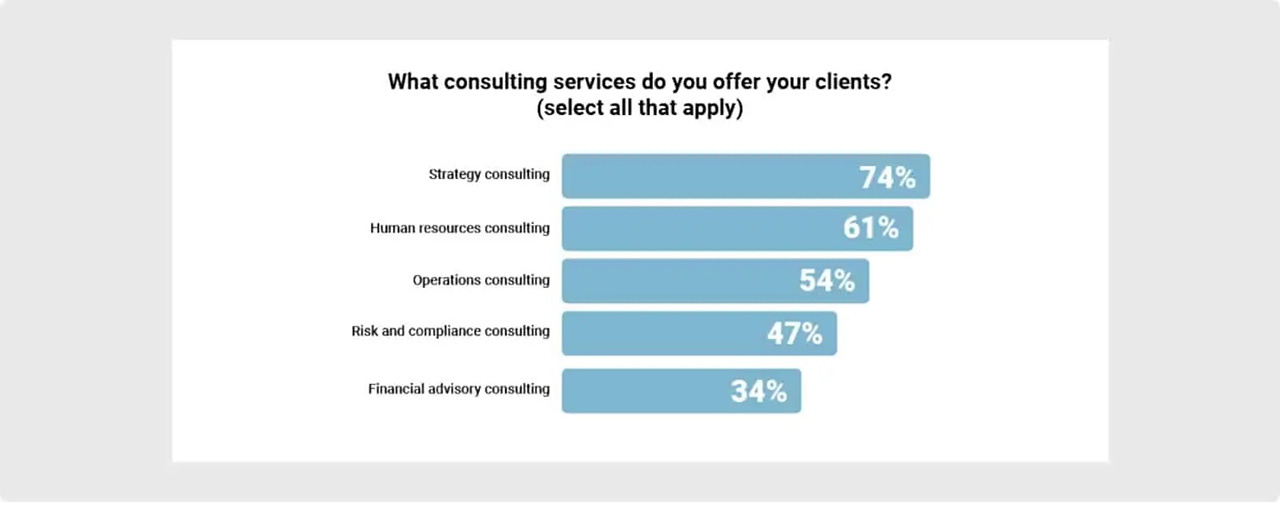
Consulting involves working closely with clients to identify the problems and create solutions. The role requires you to understand the causes of problems and develop trusting relationships with your clients. This job requires flexibility and long hours. If you have the required qualifications, you can pursue a career in consulting.
For a job in consulting, you will need to have the following qualifications
There are many qualifications needed to be a consultant depending on the company. Some require a postgraduate degree in business or a related subject, while others do not. While MBA and PhD graduates can be highly valued by certain firms, this is not a requirement. Some firms will accept applicants who have relevant industry experience. New graduates should also consider applying for training schemes with large firms.
Consultants should have great interpersonal and communication skills. They also must be flexible and willing to take on new challenges. They must also be able to work collaboratively with clients and other stakeholders. Their main responsibility is to bring the conversation along and keep it going. They need to be able apply a structured process and be capable of understanding and responding to clients' needs and concerns.

Flexibility
Flexible consulting jobs are becoming more popular. This trend is driven in part by clients who accept flexible working arrangements within their own companies. Jon Williams, co-founder of Fifth Frame, a boutique consultancy, and former senior partner at PwC said that flexible working is becoming the norm. This is not a new phenomenon. However, it is becoming more prevalent. Flexible jobs have been more popular in the past few years as a viable business model.
A consultancy allows you to choose your own work hours. Even though you don't work traditional hours you still need to meet the deadlines set by your clients. You can work remotely but still must adhere to deadlines.
Long hours
It can be exhausting to work long hours in a consulting job. Consultants are often required to work weekends and for long hours. Sometimes they do not have time for lunch. Even their evening breaks can be limited to an hour to travel or eat dinner. Many studies show that consultants can work overtime.
There are different regions that have different workweeks. For instance, consultants in Singapore and Dubai work longer hours that their US counterparts. Consultants in Italy are expected to work from 9am to 11pm weekdays and from 9am to 8pm Fridays. This means that 70 to 80 per cent of weekends are spent on the job. The type of project also plays a role in the number of hours, with shorter projects and last-minute proposals typically requiring longer hours.

Stress
Consultancy is stressful. Although consultants often receive high salaries, it can sometimes seem as though they don't get the compensation they deserve. It is possible to feel unpaid due to fear of change in jobs or companies and uncertainty about the future. While consulting was once a respected profession, it has experienced a decline in its popularity. Many consultants now complain about the same problems that their clients. Changes in how companies conduct business have also had an impact on the way consultants work. As digitalisation makes information more easily accessible, companies are becoming more disciplined and meticulous.
Some consultants become so involved in their work they cannot switch off. This can lead depression or anxiety that can cause low motivation and productivity. Many consultants spend all day at work and rarely have time to spend with friends or family. Consultants are so focused on their work they become accustomed to being on call 24 hours a days.
FAQ
Who hires consultants
Many organizations have consultants who help them with projects. These include small businesses, large companies, government agencies and non-profits.
Some consultants work directly for these organisations, while others freelance. In both cases, the process for hiring depends on how complex and large the project is.
Before you can hire a consultant, there will be several rounds of interviews.
How long does a consultant take?
Depending on your industry and background, the time required will vary. Most people start their career with only a few months to find work.
However, some consultants spend several years honing their skills before finding work.
How much do consultants make?
Some consultants make over $100k per year. However, most consultants only make $25-$50k. An average consultant salary is $39,000 This includes both hourly and salaried consultant.
Salary depends on the experience of the consultant, their location, industry, type and length of the contract (contractor or employee), as well as whether they have their own office or work remotely.
Are consulting incomes subject to tax?
Yes, you must pay tax on the consultancy profits. The amount of your earnings per year will determine the tax payable.
If you're self employed, you can deduct expenses beyond your salary.
But, interest payments on loans, vehicle and equipment depreciation will not be allowed to be deducted.
If you earn less than PS10,000 per year, 25% can be claimed back.
You might be taxed even if you make more than the threshold depending on whether your income is contractor or employee.
Employers are taxed via PAYE (pay as your earn), and contractors through VAT.
What industries use consultants
There are many types. There are many types of consultants. Some specialize in one type of business, while others can handle multiple areas.
Some consultants work only for private companies, while others represent large corporations.
Many consultants also work internationally to assist companies from all corners of the globe.
What was the origin of modern consultancy?
Consultants were originally accountants who could help companies manage their financial affairs. Their skills in managing financial information led to them being called "accounting consultant". This role quickly expanded to include human resource management.
The French word "to advise" is the origin of the term "consultant". It was first used by businessmen to refer to someone who could give advice about how to run an organisation. Even today, many business owners still use "consultant" when referring to professional advisors.
How does consulting differ to freelancing
Freelancers, who are self-employed and provide services to clients without the need for employees, are independent contractors. They charge hourly rates depending on the amount of time spent on a client's projects. Consultants work for companies and agencies that employ them. Consultants are typically paid either monthly or annually.
Because they set their own hours and prices, freelancers are often more flexible than consultants. Consultants have better benefits, like health insurance, vacation time, sick leave, retirement plans and etc.
Statistics
- My 10 years of experience and 6-step program have helped over 20 clients boost their sales by an average of 33% in 6 months. (consultingsuccess.com)
- Over 50% of consultants get their first consulting client through a referral from their network. (consultingsuccess.com)
- So, if you help your clients increase their sales by 33%, then use a word like “revolution” instead of “increase.” (consultingsuccess.com)
- According to statistics from the ONS, the UK has around 300,000 consultants, of which around 63,000 professionals work as management consultants. (consultancy.uk)
- 67% of consultants start their consulting businesses after quitting their jobs, while 33% start while they're still at their jobs. (consultingsuccess.com)
External Links
How To
How To Start A Consultancy Company, And What Should I Do First?
You can make a lot of money by setting up a consulting business. You don’t need to have business experience or invest capital. You can start your own consulting firm by building a website. After you have built a website, social media platforms such Instagram, Pinterest and LinkedIn will be useful to spread the word about your services.
These tools allow you to make a marketing program that includes the following:
-
Creating content (blogs)
-
Establishing connections (contacts)
-
Generating Leads (lead generation forms).
-
Selling products on e-Commerce websites
Once you've developed your marketing strategy, you'll need to find clients who will pay for your services. While some prefer to network through events and networking groups, others prefer to use online tools like Craigslist or Kijiji. It's up to you to make the decision.
Once you have found clients, you should discuss terms and payment options. This could include hourly fees, retainer agreements, flat fee contracts, etc. It's important to know what you expect before accepting a client so you can communicate clearly throughout the process.
Hourly agreements are the most commonly used contract type for consultancy service. This contract allows you to pay a fixed amount each week or month for certain services. Based on the service you provide, you might be able to negotiate a discount based on the length of your contract. Before you sign a contract, ensure you understand everything.
Next, you will need to create invoices that you can send to your clients. Invoicing can be a complicated task until you actually attempt it. You have many options to invoice your clients. You can choose to have your invoices sent directly to your clients or to print them and send them. Whatever your preferred method, make sure it works well for you.
After you've created your invoices, you can collect payments. PayPal is popular because it is easy to use, offers several payment options, and most people prefer it. However, other payment processors are available, including Stripe, Square Cash, Google Wallet, Apple Pay, Venmo, etc.
Once you're ready to begin collecting payments, you'll want to set up bank accounts. You can keep separate checking and savings accounts to track income as well as expenses. You can also set up automatic bank transfers to pay bills.
It may seem overwhelming to start a consultancy, but once it is done correctly, it becomes second-nature. Check out this blog post for more information about starting a consultancy company.
Starting a consulting firm is a great way to earn extra cash without worrying about employees. Many consultants work remotely. They don't have any need to deal with office politics, long hours or office politics. Since you are not tied down by regular working hours, you have more flexibility than a traditional employee.